Trans man told he could not enlist in military because of his gender identity
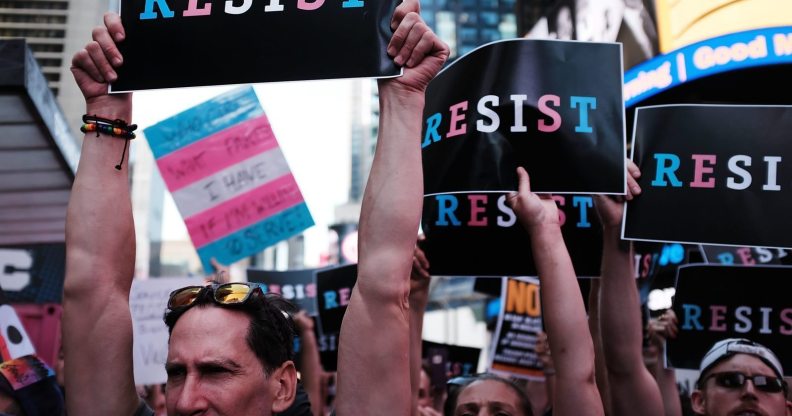
Anti-Trump protesters in New York (Photo by Spencer Platt/Getty Images)
A transgender man who tried to enlist in the US military was told that he would not be able to because of his gender identity.
Despite a court ruling that overturned President Trump’s ban on trans troops, one trans man has told BuzzFeed News that he was turned away multiple times by the Air Force Reserves because of his trans status.

Parker, who did not disclose his full name, said that when contacting recruiters in Washington, DC he faced rejection.
“I was pretty appalled,” Parker said. “When I contacted the Air Force Reserves, I was hopeful that all the roadblocks would be levelled and I could be processed. However, to my dismay, they were not.”
The 24-year-old currently studies terrorism and homeland security at master’s level and has wanted to enlist in the army for the past five years.
When Trump’s ban was overruled by a judge, allowing trans people to enlist, Parker hoped that he would be taken in straight away.
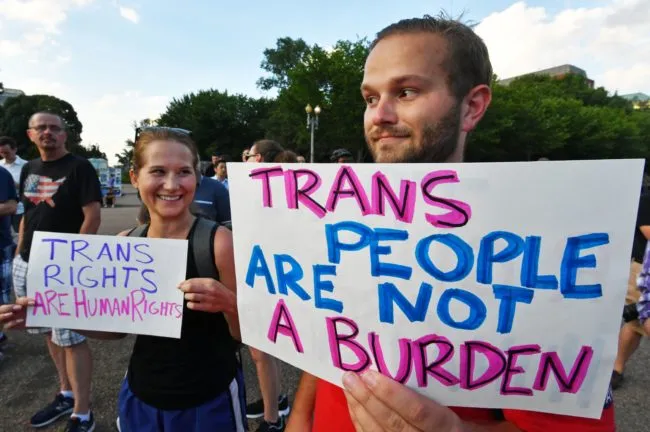
(Getty)
However, the rejection made him start to give up on his hopes of joining.
“When I called yesterday it was my last attempt because it’s disheartening to be refused,” he explained.
Related: Trump administration ‘misled court’ about need for transgender military ban
The Pentagon and The Air Force Reserves have condemned the rejection of Parker and insisted that trans Americans are being enlisted given that they meet criteria.
The incident was described as an “error” by Col. Bruce Bender, a spokesperson for Air Force Reserve Command.
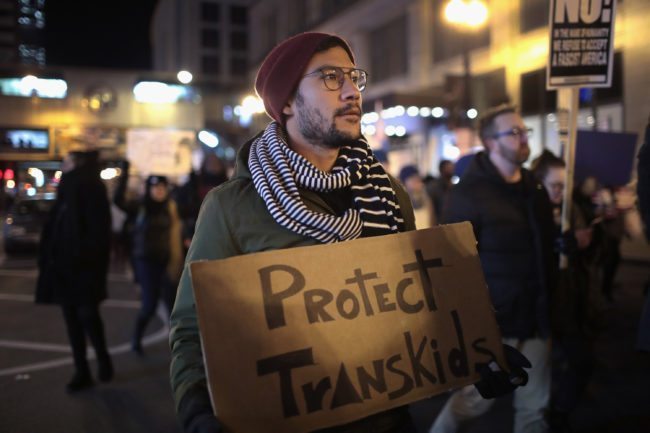
(Photo by Scott Olson/Getty Images)
“We certainly regret missing a potential recruit in this situation,” said Bender. “We strive to make sure accurate information gets to our contractors, and sometimes information is slow to get to the distant ends because we work in a bureaucracy.”
“We are ensuring that all the call centre contractors have the correct information,” he said.
Col. Bender added that the man, who is identified only as Dave, was not a member of the service but rather a civilian employee.
Related: US court rejects Trump transgender ban as military prepares to accept trans troops
Dave confirmed that Parker had been rejected, explaining: “Right now a person who is transgender is not eligible to enter the Air Force Reserve. That is based on our guidance.”
Other officials confirmed that they were doing everything to “ensure everyone understands the new standards, preventing something like this from happening again.”
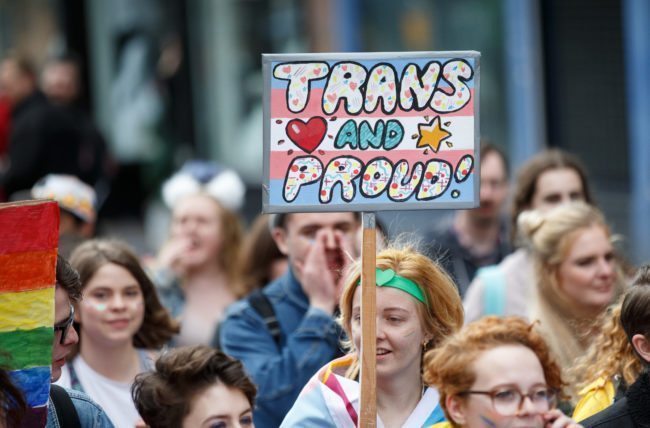
(Getty)
Parker was later contacted by officials who made him feel welcomed to join the Air Force once more.
Transgender individuals were permitted to enlist in the US military from January 1st.
It came as the Pentagon was forced to comply with a federal court ruling which tossed out President Trump’s proposed ban on trans troops.
Four separate lawsuits moved through courts across America to challenge the order which was first revealed by Trump on Twitter in the summer.
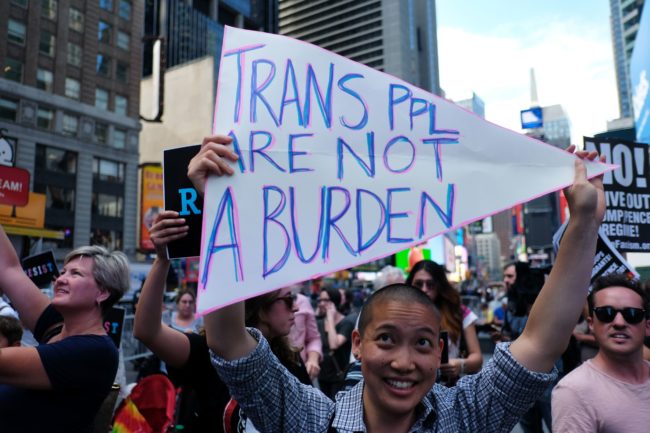
(Getty)
He wrote that trans individuals would not be permitted to enter the US military “in any capacity” because of the “tremendous medical costs and disruption.”
Trump’s comments came despite an Obama-era directive that permitted trans individuals to enrol in the military.
Despite the court order successfully allowing new trans recruits, different court actions have halted the implementation of the ban on current transgender service members.
The Trump administration had sought an emergency injunction to allow it to continue banning transgender personnel.
However, the bid was rejected by the Federal District Court in DC.

The new guidelines issued regarding new trans troops state that applicants will only be allowed to join if a medical provider can confirm that the individual has been stable without “clinically significant distress or impairment in social, occupational, or other important areas of functioning” for 18 months.
They must also certify that an applicant “has completed all medical treatment associated with the applicant’s gender transition, the applicant has been stable in the preferred gender for 18 months, and if presently receiving cross-sex hormone therapy post-gender transition, the individual has been stable on such hormones for 18 months.”
Those who have undergone gender confirmation surgery must have a medical provider certify that “a period of 18 months has elapsed since the date of the most recent surgery, no functional limitations or complications persist, and no additional surgeries are required.”

